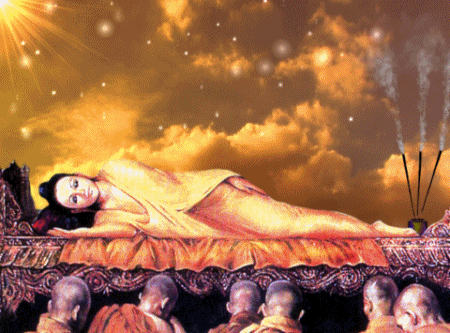-
Listening with calm and understanding Comment July 20, 2014 -
Swing ride.. Comment July 20, 2014 -
Typhoon Rammasun toll in Philippines rises to 77 Comment July 20, 2014 -
I'm so in Love with Mother Nature 199 July 20, 2014 Life is beautiful, when you learn how to forgive, forget and let go. Nothing is easy – takes a lot of practice. You just have to keep forgiving, forgetting, and let go. Soon your heart will know how to do that naturally, without trying. Why holding on to something that cannot produce a pure smile on your face. Why do we need to be so attached to that unpleasant feeling? I have learned to accept everything in front me – good or bad, happiness or suffering. I just acknowledge them, without reaction because I know none of those things are permanent. Happiness comes and goes, so does suffering. Why wasting time and energy over something that can only make us sad, lonely and depressed…~Jendhamuni
Life is beautiful, when you learn how to forgive, forget and let go. Nothing is easy – takes a lot of practice. You just have to keep forgiving, forgetting, and let go. Soon your heart will know how to do that naturally, without trying. Why holding on to something that cannot produce a pure smile on your face. Why do we need to be so attached to that unpleasant feeling? I have learned to accept everything in front me – good or bad, happiness or suffering. I just acknowledge them, without reaction because I know none of those things are permanent. Happiness comes and goes, so does suffering. Why wasting time and energy over something that can only make us sad, lonely and depressed…~Jendhamunihttp://leelavadeeflower.blogspot.com/2014/07/im-so-in-love-with-mother-nature.html
This post has been reshared 41 times on Google+
View this post on Google+ -
Beautiful picture in the canvass of your Heart 172 July 19, 2014 We gotta look for the good in the bad,
We gotta look for the good in the bad,
the happy in our sad, the gain in our pain,
and what makes you grateful not hateful.~Author Unknown
http://leelavadeeflower.blogspot.com/2014/07/beautiful-picture-in-your-heart.html
This post has been reshared 86 times on Google+
View this post on Google+ -
Swing ride 47 July 19, 2014 Looks fun. The lovely dog
Looks fun. The lovely dog
must be having a great time.http://leelavadeeflower.blogspot.com/2014/07/swing-ride.html
This post has been reshared 26 times on Google+
View this post on Google+ -
Typhoon Rammasun 2014 Philippines 17 July 19, 2014Typhoon Rammasun 2014 Philippines
This post has been reshared 6 times on Google+
View this post on Google+ -
Never Complain Comment July 19, 2014Complaining keeps us locked in negativity, right? I mean, think about it. Who wants to hang out with someone who complains all the time? No one. So why complain even to yourself?
Try it for a week, see what happens. See how your life opens up for you. If you need more motivation, start a complaining fund—every time you catch yourself complaining, drop a quarter (or a dollar or a twenty, whatever keeps you in line) into a jar. The ego always wants to improve on the current moment. Don’t let it draw you down that path. Breathe. Find something beautiful. Focus.
Source: By Amy Jirsa, Mind Body Green
-
Cannot get my mind off the Lotus Flowers… Comment July 19, 2014 -
Like the full moon… Comment July 19, 2014













